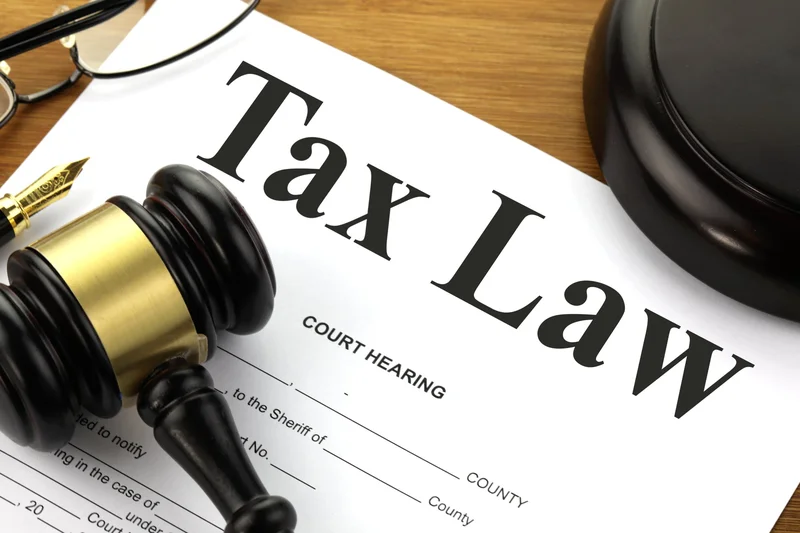Property Tax Bonfire in Chicago: What Happened and Why It Matters
Bonfires of Frustration: Can Chicago Turn Property Tax Pain into Progress?
Okay, folks, let's talk about something that's got people fired up—literally. In Chicago, homeowners are gathering around bonfires, not for s'mores, but to discuss their skyrocketing property taxes. Yes, you read that right, bonfires ignited by frustration over tax hikes. It sounds almost medieval, doesn't it? But it’s happening right now, and it’s a potent symbol of a much larger issue.
The scene: a chilly November night on Chicago's West Side. The air is thick with the scent of burning wood, and the flickering flames cast dancing shadows on the faces of concerned homeowners. They're gathered at Harmony Community Church in Lawndale, not for a sermon, but for a "property tax bonfire," a community forum to vent their anger and search for solutions. One resident, Thomas Worthy, received a bill nearly $1,000 higher than last year. "Tax increase is tied to a TIF that I have no idea why," Worthy said. It's collecting money from our neighbors and streets, but we're not being notified why it's in the bill."
Now, before we dive deeper, let's clarify something: a TIF, or tax increment financing, is a tool used to fund local redevelopment. The idea is that increased property tax revenue in a designated area goes towards improving that area. But what happens when residents don’t see those improvements? What happens when they feel like they’re being taxed for prosperity that isn’t theirs? That's when you get bonfires. Chicago homeowners speak out on new property tax increases at bonfire on West Side
Homeowners are feeling the pinch, and it’s not just a little squeeze. Illinoisans are paying the second-highest property tax rate in the U.S., shelling out about 2.07% of their property’s value each year, more than double the national rate. And in Cook County, where Chicago sits, those taxes can be even higher than in pricey California counties. It's like being asked to pay for a gourmet meal when all you're getting is table scraps.
Cook County Treasurer Maria Pappas offered a lifeline, announcing payment plans for up to 13 months. "You do not have to pay your bill on December 15," Pappas said. "You hear that? You don't have to pay it. Let me tell you why. We went to Springfield last year and set up a payment plan." While helpful, it's a band-aid on a much deeper wound. It's like offering someone a longer rope while they're already dangling over a cliff.
From Frustration to a Phoenix: A Chance for Renewal
But here's where I see an opportunity. This bonfire, this collective frustration, can be the spark that ignites real change. Like the mythical phoenix rising from the ashes, Chicago can use this moment to rebuild its tax system, making it fairer and more transparent.
One proposed solution is modeled after California's Prop 13, which limits property taxes to one percent of assessed value with annual increases capped at 2%. This could provide much-needed stability for homeowners. But is it the only solution? What other innovative approaches could Chicago explore?

Mayor Brandon Johnson is facing pushback over his proposal to extract a record $1 billion from TIF districts to balance the city's budget. While supporters say it would shore up city finances and boost school funding, others worry about delays in neighborhood improvements.
This reminds me of the early days of the internet. There was chaos, uncertainty, and a lot of skepticism. But out of that chaos emerged a world-changing technology. Chicago's property tax crisis, while painful, could be the catalyst for a similar transformation. The city needs to find a way to balance its budget while ensuring that residents see tangible benefits from their tax dollars. It's a delicate balancing act, but it's not impossible.
What if Chicago used this crisis as an opportunity to invest in its neighborhoods, creating jobs, improving schools, and building affordable housing? What if the city embraced transparency, showing residents exactly where their tax dollars are going?
I know what you're thinking: "That sounds too good to be true." But I believe it's possible. It requires bold leadership, innovative thinking, and a willingness to listen to the concerns of everyday Chicagoans. This is the kind of breakthrough that reminds me why I got into this field in the first place.
And let's not forget the ethical considerations. As we develop new financial tools and strategies, we must ensure that they benefit everyone, not just a select few. We must be mindful of the potential for unintended consequences and work to create a system that is truly equitable.
A City on Fire... With Potential
This isn't just about property taxes; it's about the future of Chicago. It's about creating a city where everyone has the opportunity to thrive, where neighborhoods are vibrant and prosperous, and where residents feel like they're getting a fair return on their investment. The speed of this is just staggering—it means the gap between today and tomorrow is closing faster than we can even comprehend.
